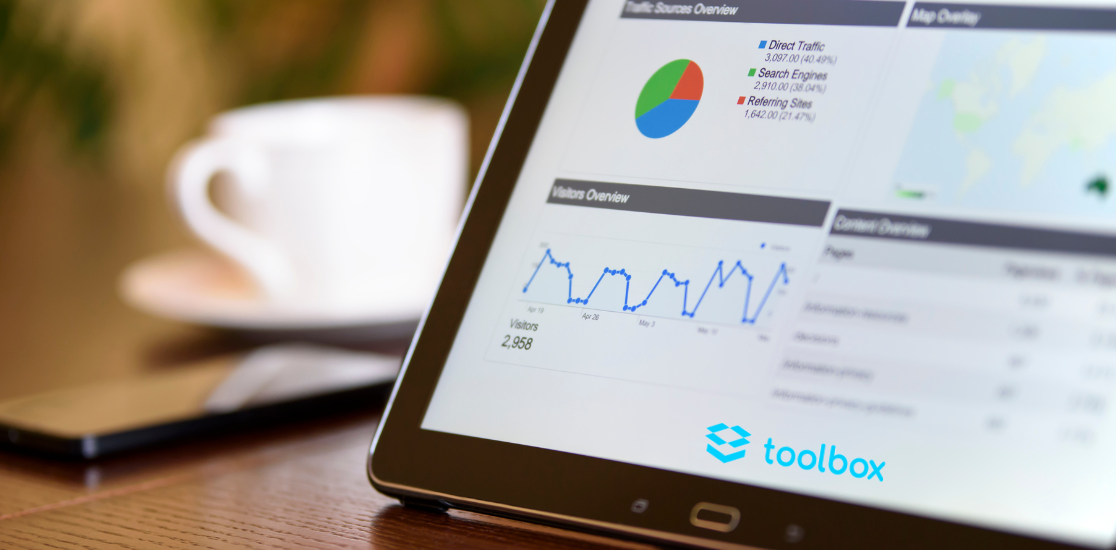POS Analytics & Reporting Software for Retail Businesses: Unlocking Data-Driven Growth

In today’s fast-paced retail environment, data is the key to unlocking business success. With the right POS analytics & reporting software for retail businesses, retailers can gain deep insights into their operations, streamline their processes, and ultimately increase their profits. This blog will explore the importance of retail POS analytics, how point of sale reporting tools enhance business decision-making, and the essential features you should look for in a POS system.
The Role of POS Analytics in Retail
Retail POS analytics provides real-time, data-driven insights that help businesses monitor sales performance, customer preferences, and inventory levels. By using sales performance tracking POS tools, retailers can identify trends, predict future demands, and make informed decisions based on historical data.
Additionally, POS software for retail analytics enables businesses to analyze customer purchasing patterns, which helps create targeted marketing campaigns and loyalty programs. Understanding these data points allows businesses to enhance customer satisfaction while increasing sales.
Key Features of POS Reporting Tools
When choosing POS software with sales insights, it’s important to ensure that it includes robust reporting and analytics features. Here are some of the essential functionalities that can significantly impact your business performance:
- Real-Time POS Analytics: Monitor transactions as they happen, so you can make immediate adjustments to inventory or pricing.
- Sales Data Reporting for Retail Stores: Track sales on a daily, weekly, or monthly basis to identify your top-performing products and optimize your inventory.
- Inventory Analytics POS: Stay on top of your stock levels and avoid overstocking or stockouts with detailed reports on your inventory turnover.
- Multi-Store POS Reporting: If you operate multiple locations, ensure that the system allows you to consolidate data across all your stores, giving you a complete picture of your entire retail operation.
- POS Business Intelligence Software: Generate comprehensive reports on key metrics, such as revenue, sales trends, and customer data, which can help you develop better strategies for business growth.
- Retail Business Performance Reports: These reports provide insights into your store’s overall performance, helping you identify areas that need improvement and strategies that work best.
The Benefits of POS Analytics for Retail Stores
Implementing POS analytics and reporting software for retail businesses offers numerous benefits:
- Improved Inventory Management: Using inventory analytics POS tools, you can track stock levels in real time, preventing costly overstocking or stockouts. This ensures you’re carrying the right products based on demand.
- Enhanced Sales Tracking: Sales data reporting for retail stores enables retailers to track individual and overall store performance, allowing managers to identify best-selling products and underperforming items that may need a marketing push.
- Revenue and Profit Optimization: By utilizing revenue analysis POS software, retailers can analyze profitability by product line, department, or store. This helps in adjusting pricing strategies to maximize profits.
- Customer Insights: Retail data reporting software captures valuable customer data, such as purchasing habits, preferences, and loyalty patterns, enabling you to tailor your marketing and customer service strategies for a more personalized shopping experience.
How to Leverage POS Data Insights for Business Growth
To fully harness the potential of POS data insights for retail, businesses need to focus on creating a structured approach to analyzing and applying this data. Here are some actionable steps to take:
- Identify Key Metrics: Focus on the most critical data points such as daily sales, average transaction value, and customer return rates to drive decision-making.
- Customize Reports: Use custom POS analytics solutions to create reports that cater to your specific business needs. This allows you to track the data that matters most and make strategic decisions quickly.
- Integrate with Other Systems: Connect your retail reporting software to other business tools, such as customer relationship management (CRM) and accounting software, for a comprehensive view of your business operations.
Conclusion
Incorporating POS analytics & reporting software for retail businesses into your operations allows you to make data-driven decisions that enhance efficiency, improve customer satisfaction, and boost your bottom line. Whether you’re tracking inventory with inventory analytics POS or analyzing sales trends through POS sales reporting solutions, having the right tools in place can help you stay ahead in a competitive retail market.
By using robust POS software with sales insights, your retail business will not only optimize daily operations but also position itself for sustainable growth.
